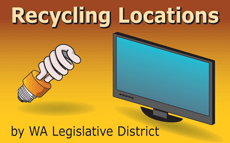Oregon's producer operated container deposit system costs less than any other in North America
In the April 18, 2018 Register-Guard, Jules Bailey of the Oregon Beverage Recycling Cooperative describes how taxpayers reap the value of Oregon’s bottle and can redemption system:
"Oregon’s deposit and redemption system for bottles and cans, also known as the Bottle Bill, is the most cost-effective system of its kind in the United States. It is nationally recognized for providing an outstanding service at no cost to taxpayers...
Harnessing the power of the private sector is the secret sauce that makes Oregon’s system a national model. State-operated systems, like California’s, can require taxpayers to subsidize the state agencies that manage both customer deposits and complex networks of bottle and can collectors, haulers and processors. Unredeemed deposits can be reclaimed by the state, but they may not offset the real cost of operating the system.
In fact, unredeemed deposits don’t cover the whole cost of the system in Oregon either. But in Oregon, the beverage industry, not the taxpayers, pays the difference. Unlike in other states, there is no risk in Oregon that paying for the bottle and can return system could mean less money for schools and other services...
Oregon’s program captures the best concepts of extended producer responsibility. It mandates that industry use its strengths — innovation and efficiency — to meet transparency requirements and redemption rates set by the public’s representatives in the Legislature. It’s a system accountable to the public, but not owned by it.
That system works. The Oregon Beverage Recycling Cooperative has kept the cost of Oregon’s bottle and can redemption program down by operating a statewide network of collection centers, trucks and processing plants. OBRC runs all of this at a cost of less than 2 cents per container — less than any other deposit system in North America. And the beverage industry continues to improve operations..."
